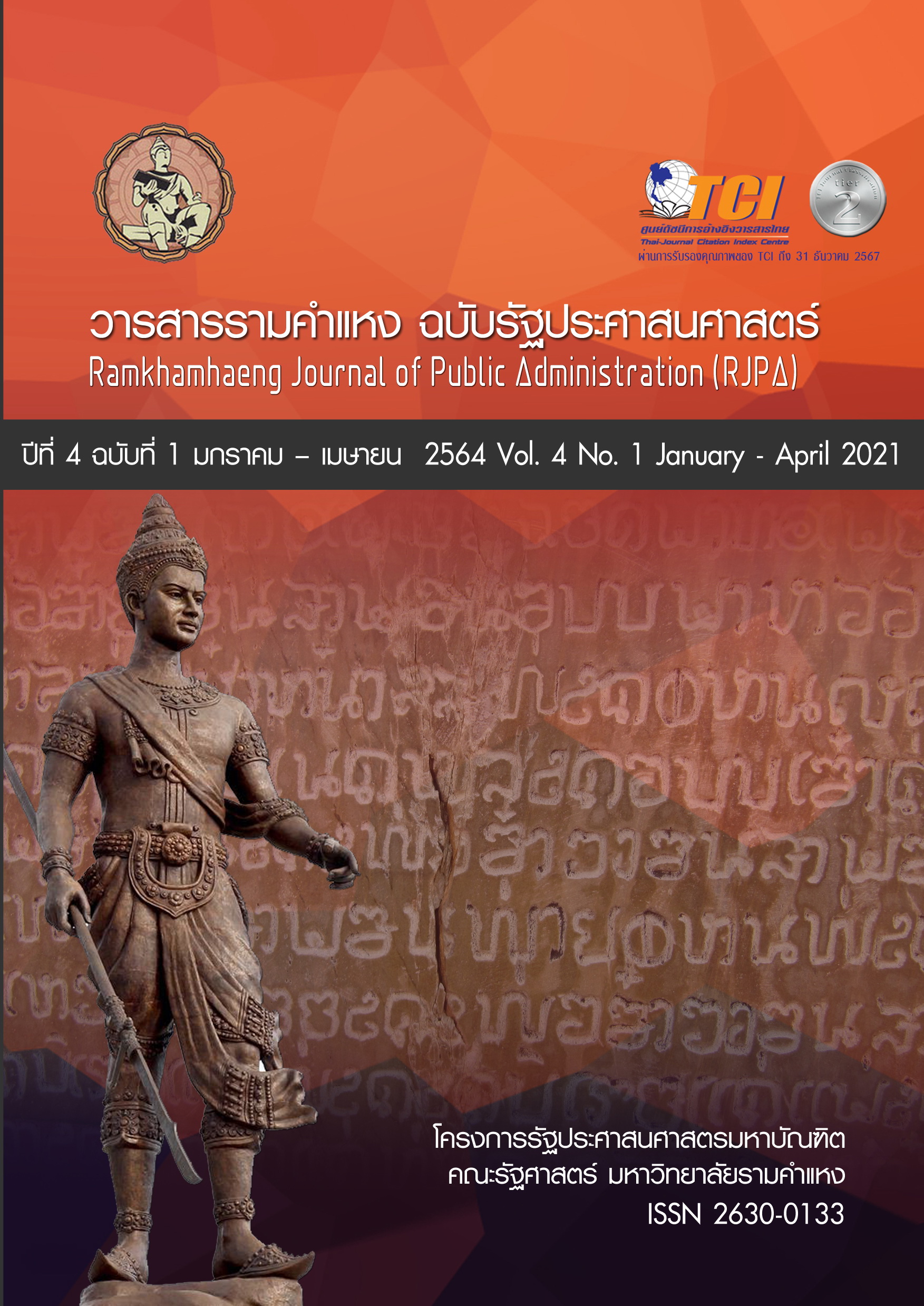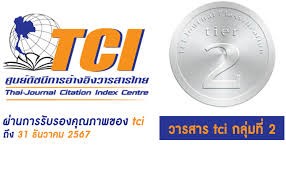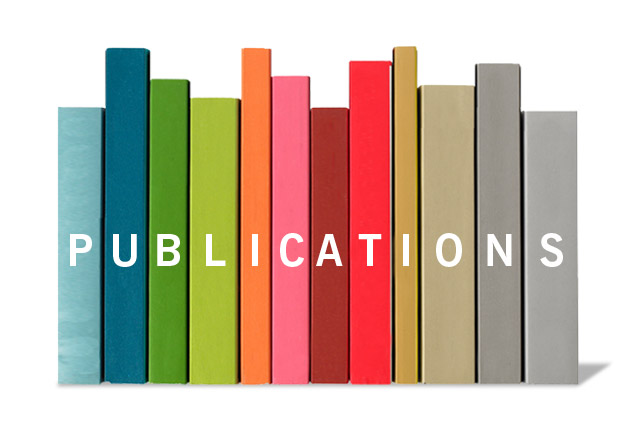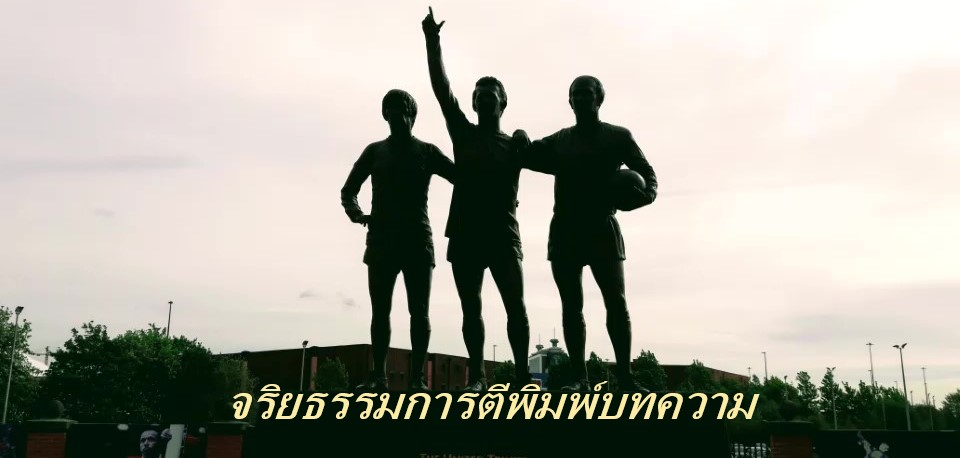การชุมนุมทางการเมืองกับการพัฒนาประชาธิปไตยไทย (Political rallies and democratic development in Thailand)
Abstract
บทคัดย่อ
เสรีภาพในการชุมนุมเป็นหลักการพื้นฐานของนานาประเทศที่มีการปกครองในระบอบประชาธิปไตย ซึ่งประเทศไทยได้มีการบัญญัติรับรองสิทธินั้นในรัฐธรรมนูญหลายฉบับ ตลอดระยะเวลาเกือบ 9 ทศวรรษ ภายหลังการเปลี่ยนแปลงการปกครอง 2475 ประเทศไทยผ่านการชุมนุมทางการเมืองสำคัญที่มีผลต่อพัฒนาการประชาธิปไตยอย่างน้อย 2 ครั้ง คือ เหตุการณ์ 14 ตุลาคม 2516 และเหตุการณ์พฤษภาคม 2535 แต่พัฒนาการประชาธิปไตยของไทยก็ไม่ได้เป็นไปอย่างต่อเนื่องเพราะเหตุมีวิกฤติการณ์ทางการเมืองนำไปสู่การรัฐประหารและยกเลิกรัฐธรรมนูญหลายครั้ง แม้ว่าในปัจจุบันรัฐธรรมนูญแห่งราชอาณาจักรไทย พุทธศักราช 2560 มาตรา 44 จะบัญญัติรับรองสิทธิการชุมนุมสาธารณะ ประกอบกับมีการประกาศใช้พระราชบัญญัติชุมนุมสาธารณะ พ.ศ. 2558 ซึ่งในทางหลักการควรมีผลให้ระดับความเป็นประชาธิปไตยของประเทศไทยอยู่ในเกณฑ์ที่พึงประสงค์ แต่จากผลการประเมินของ The Economist Intelligence Units (EIU)หรือ Democracy Index ซึ่งสำรวจสถานการณ์มากกว่า 160 ประเทศทั่วโลก พบว่า ประเทศไทยมีผลการประเมินด้านเสรีภาพของพลเรือนในเกณฑ์ค่อนข้างต่ำอย่างต่อเนื่อง โดยได้รับคะแนน 5.29 จากเต็ม 10 ในปี 2563 บทความนี้จึงมีจุดมุ่งหมายเพื่อแสวงหาคำตอบว่าอะไรเป็นปัจจัยที่ทำให้ค่าคะแนนเสรีภาพของพลเมืองมีค่าผันผวนแกว่งตัว ทำไมค่าคะแนนในองค์ประกอบ “เสรีภาพของพลเรือน” ในปี 2563 มีค่าต่ำสุด นับแต่ปีพ.ศ. 2560 เป็นต้นมา คำตอบที่พบคือ สถานการณ์การชุมนุมทางการเมืองที่มีอยู่อย่างต่อเนื่องและมีแนวโน้มเพิ่มจำนวนมากขึ้น และวิธีการจัดการกับสถานการณ์การชุมนุมเป็นปัจจัยสำคัญที่มีผลต่อการประเมินระดับความเป็นประชาธิปไตยของประเทศไทย การพัฒนาประชาธิปไตยไทยจึงขึ้นอยู่กับการที่ทุกฝ่ายจะต้องอดทน อดกลั้นต่อความเห็น ความเชื่อที่แตกต่าง และแก้ไขปัญหาที่เกิดขึ้นด้วยสันติวิธี สิ่งสำคัญอีกประการหนึ่งคือ ฝ่ายรัฐ จะต้องหลีกเลี่ยงพฤติกรรมใดๆ ที่เป็นการลิดรอน แทรกแซงหรือจำกัดเสรีภาพการแสดงความคิดเห็นของประชาชนเกินกว่าความจำเป็น
Abstract
Freedom of assembly is a fundamental principle of all democratic countries including Thailand which has certified that right in many constitutions. Over the course of nearly nine decades after political change in1932, Thailand has gone through at least two major political rallies affecting democratic development: the 14 October 1973 turmoil and the May 1992 turmoil. However, the development of democracy in Thailand has not been continued because of political crises, leading to several coups and constitutional abolition. Although at present, the Constitution of the Kingdom of Thailand 2017, Article 44, recognizes the right to public assembly. In addition, the Public Assembly Act 2015 was promulgated, which in principle should result in the democratic level of Thailand at the desirable criteria. But, according to an assessment by The Economist Intelligence Units (EIU) or Democracy Index, which surveyed more than 160 countries around the world, it was found that Thailand has consistently relatively low assessments of civil liberties, with a score of 5.29 out of 10 in 2020. This article aims to find out what drives the volatility of the Civil Liberties Score in Thailand. Why is the score value in an element of Civil liberties in 2020 are the lowest, since 2017. The answer is the situation of political protests which is ongoing and is likely to increase. And also, how to deal with the situation of assembly is an important factor affecting the democratic assessment of Thailand. The development of Thai democracy therefore depends on the patience of all parties. Restraining opinions and different beliefs should be resolved with peaceful means. It is also important that the government must avoid any behavior of deprivation, intervention or restriction of the freedom of public opinion beyond what is necessary.




 Publication Policy (นโยบายการตีพิมพ์บทความ)
Publication Policy (นโยบายการตีพิมพ์บทความ) Publication Ethics (จริยธรรมการตีพิมพ์บทความ)
Publication Ethics (จริยธรรมการตีพิมพ์บทความ)